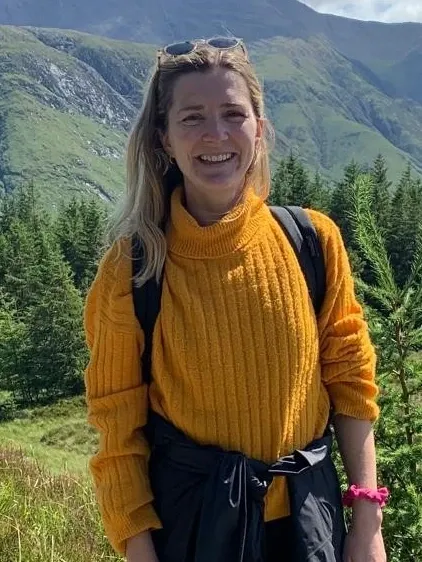
Hannah Robinson, 36, is a dentist from Devon. She became the first adult in the UK to receive a groundbreaking immunotherapy treatment, teplizumab (Tzield). Hannah was able to access teplizumab through a special programme run by the drug company that allows small numbers of people to try promising new treatments early.
Teplizumab weakens the immune system’s attack at the root of type 1 diabetes. For people in the early stages of type 1 diabetes, it helps them keep making more of their own insulin for longer – delaying a full diagnosis and the need to start insulin treatment.
Here, Hannah shares her experiences of an early-stage type 1 diabetes diagnosis and what it was like to have teplizumab.
